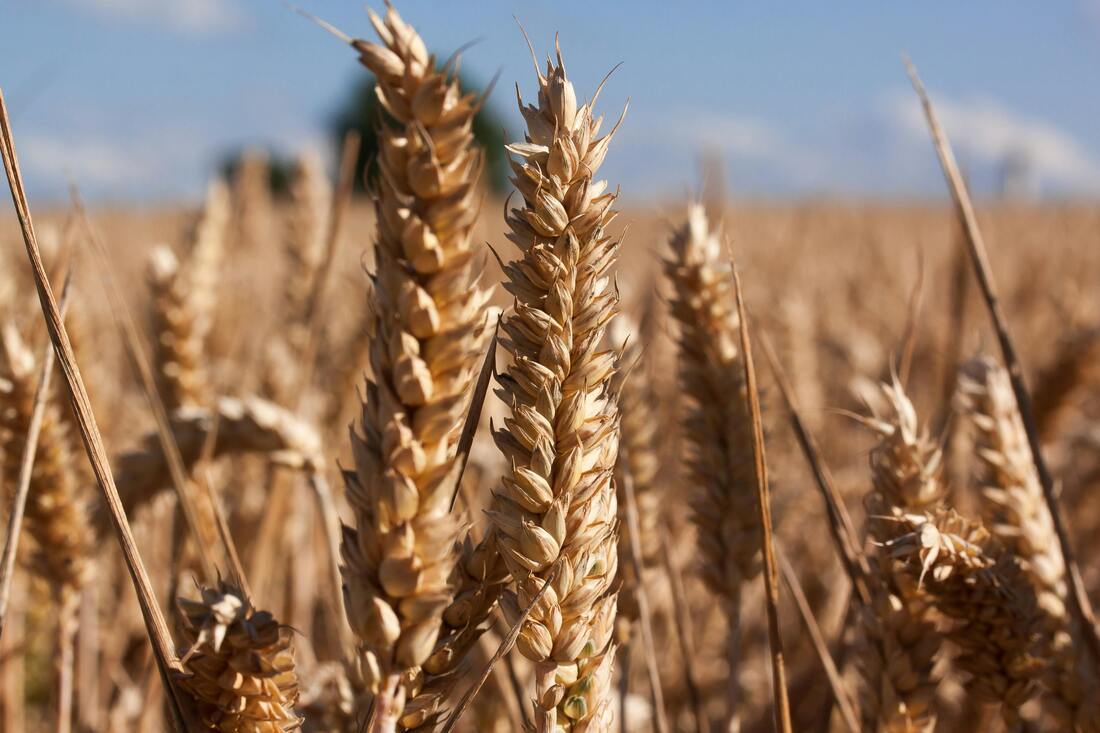|
It is called Yom Habikkurim in Hebrew and means The Feast of Firstfruits. "The Lord said to Moses, 'Speak to the Israelites and say to them: When you enter the land I am going to give you and you reap its harvest, bring to the priest a sheaf of the first grain of harvest. He is to wave the sheaf before the Lord so it will be accepted on your behalf. The priest is to wave it on the day after the Sabbath.'" (Leviticus 23:9-11) The children of Israel kept this feast not knowing it was a portend of the future.
The yearly Hebrew calendar for months begins with Nissan. The Lord intentionally placed it in the spring when new life is emerging. He said, "This month is to be for you the first month, the first month of the year." (Exodus 12:2) On the tenth of Nissan, each family would bring into their home a year-old, spotless male lamb. The lamb was to be slaughtered on Nissan 14 and the blood from that lamb placed upon the tops and doorframes of their homes. The reasons they did this was to protect themselves from the judgment plague of the death of the firstborn and to initiate the beginning of the Passover Festival that is to be celebrated yearly. Later, they followed with a firstfruits celebration on Nissan 16. Through the celebration of Firstfruits, the Israelites were to bring before the Lord the first and best of their harvest. Frequently they brought a sheaf of their barley harvest for the priest to wave before God. By bringing this offering, the people were declaring their trust in God for the coming harvest. The dates of these festivals are the same ones that our Passover Lamb, Jesus, was crucified and rose from the dead. Messiah said, "A single grain of wheat will never be more than a single grain of wheat unless it drops into the ground and dies. Because then it sprouts and produces a great harvest of wheat—all because one grain died." (John 12-24 - TPT) A footnote in The Passion Translation attached to this verse gives the Aramaic translation: "If it dies, it will bring forth a great rebirth." Jesus, the sacrifice for our sins, was accepted on our behalf by the Father as the perfect sacrifice, and He was raised to new life by the power of the Holy Spirit. 1 Corinthians 15:20-22 explains that Jesus is our Firstfruit offering: "But Christ has been raised from the dead, the firstfruits of those who have fallen asleep. For since death came through a man, the resurrection of the dead comes also through a man. For as in Adam all die, so in Christ all will be made alive." Romans 6:4 adds to our understanding: "Sharing in His death by our baptism means that we were co-buried and entombed with Him, so that when the Father's glory raised Christ from the dead, we were also raised with Him. We have been co-resurrected with Him so that we could be empowered to walk in the freshness of new life." (TPT) Jesus is our Passover Lamb and our offering of Firstfruits. Since we are in the month of Nissan, it is time for us to acknowledge what the Lord did for us. When we give God our first and best offerings, we are saying to Him that we are setting this aside as an act of worship and devotion to Him. While Firstfruits is no longer tied to growing grains and produce, we can demonstrate our devotion to the Lord through our time, resources, and love. We have a promise in Proverbs 3:9, 10. "Glorify God with all your wealth, honoring Him with your very best (firstfruits), with every increase that comes to you. Then every dimension of your life will overflow with blessings from an uncontainable source of inner joy." (TPT) Not only is Jesus remembered as our resurrected King on Nissan 16, but it is the day when God's people practice what is called "Counting the Omer." (Omer means sheaf.) In the counting, the Lord's faithfulness is acknowledged daily. This occurs for fifty days until the next harvest when the Holy Spirit was poured out. Through this counting, we have a special opportunity to draw close to God daily. Here is how I count the Omer: I keep a gratitude journal and record my blessings in it daily. Maybe recording this daily thanksgiving to the Lord would bless you as it has blessed me. |
Joan E. MathiasCategories
All
Archives
July 2024
|

 RSS Feed
RSS Feed